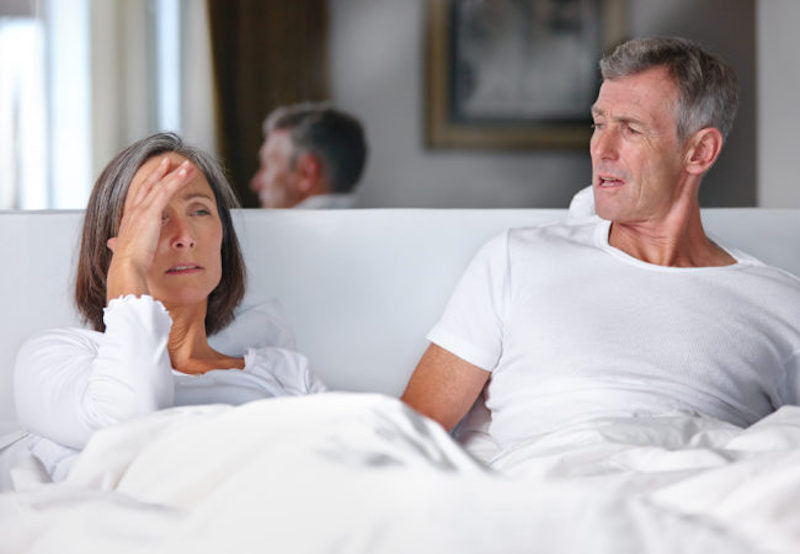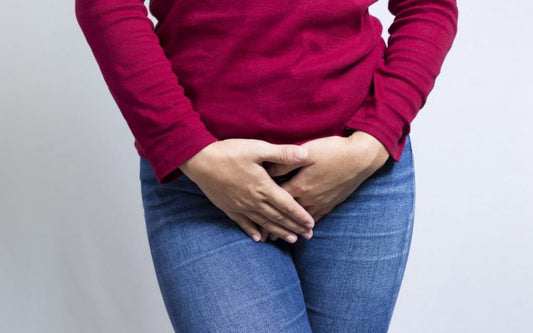
Sexual Dysfunction
Is Sexual Dysfunction getting in the way of your relationship?
Here’s a look at some forms of female sexual dysfunction (FSD) and how to get help if it is affecting you.
According to the Sexual Advice Association, sexual problems affect around one-third of young and middle-aged women, and around half of older women.
To identify the reasons behind sexual dysfunction, both physical and psychological factors have to be considered, including a woman’s relationship with her partner.
Loss of desire
Loss of desire, or lack of sex drive, affects some women at certain times of life, such as during pregnancy, after having a baby, or times of stress. But some women experience it all the time.
A lack of sex drive can have a range of physical or psychological causes, including:
- Relationship problems
- Depression
- Previous mental or physical trauma
- Tiredness
- Hormone disorders
- Excessive alcohol and drug use
- Certain medications
Sex drive can also fall if a woman’s natural testosterone levels drop. Testosterone is produced in the ovaries and adrenal glands, so levels can drop if these are removed or they’re not functioning properly.
Problems with Orgasm
These can be divided into two types:
- primary – when a woman has never had an orgasm
- secondary – when a woman has had an orgasm in the past, but can’t now
Some women don’t need to have an orgasm to enjoy sex, but an inability to reach orgasm can be a problem for some women and their partners.
Reasons why a woman can’t have an orgasm can include:
- fear or lack of knowledge about sex
- being unable to “let go”
- not enough effective stimulation
- relationship problems
- mood disorders – such as depression
- previous traumatic sexual experience
Research is being done into certain medical conditions that affect the blood and nerve supply to the clitoris to see whether this affects orgasm.
Read What is an orgasm? to find out more.
Psychosexual therapy can help a woman overcome orgasm problems. It involves exploring her feelings about sex, her relationship and herself.
Pain during sex
Pain during sex – also called dyspareunia – can be a result of vaginismus.
Vaginismus is when muscles in or around the vagina go into spasm, making sexual intercourse painful or impossible. It can be very upsetting and distressing.
It can occur if the woman associates sex with pain or being “wrong”, or if she’s had vaginal trauma, such as childbirth or an episiotomy.It can also stem from relationship problems, fear of pregnancy, or painful conditions of the vagina and the surrounding area.It can be treated by focusing on sex education, counselling and using vaginal trainers, also known as vaginal dilators.
Vaginal trainers are cylindrical shapes that are inserted into the vagina. A woman will gradually use larger sizes until the largest size can be inserted comfortably. Some women may wish to try using their fingers instead.
Sex after menopause
Pain during sex is common after the menopause as oestrogen levels fall and the vagina feels dry.This can affect a woman’s desire for sex, but there are lubrication creams that can help. Ask your GP or pharmacist.To find out what is causing a sexual problem and how to treat it, a doctor, practice nurse or therapist will need to ask you questions about your medical, sexual and social history.
Your GP or practice nurse can carry out tests for underlying medical conditions.
If your problem is related to lack of hormones such as testosterone or oestrogen, hormone replacement therapy (HRT) can help.Treating other conditions, such as diabetes or depression, might also alleviate symptoms of sexual dysfunction.
-
 Fan FavoriteBest Seller
Fan FavoriteBest SellerAFP Peptizyde
Regular price $44.00 USDRegular priceUnit price / per -
Aloe Vera Super Strength
Regular price $74.00 USDRegular priceUnit price / per -
Alpha Base Premier Pack
Regular price $67.00 USDRegular priceUnit price / per
Testimonials

"He is continually researching, learning, and developing his skill and knowledge for the benefit of his patients." - Kimberly H.
This is a body text example

“They are all so caring and helpful. He’s so personable and we’re so glad to be able to turn to him.” - Gayle S.
This is a body text example

"Hands down he’s the best Doctor! Such a God fearing and understanding man thats very compassionate about his job." - L.F.
This is a body text example

"I have had several HOCATT appointments and it has been Awesome!! I have really noticed the difference in my overall health." - A.M.
This is a body text example
Our Blog
-

Why Kegal Exercises Can’t Fix Incontinence Problem
If you’ve been having problems like urine incontinence, fecal incontinence, and laxity in your vaginal tissues, your doctor might suggest trying Kegel exercises. These exercises strengthen the pelvic floor muscles...
Why Kegal Exercises Can’t Fix Incontinence Problem
If you’ve been having problems like urine incontinence, fecal incontinence, and laxity in your vaginal tissues, your doctor might suggest trying Kegel exercises. These exercises strengthen the pelvic floor muscles...
-

The Truth About Incontinence After Menopause
“It’s an age thing!”If you’ve passed the age of 50 years, you’ll probably wonder if the early signs of incontinence are the onset of menopause. While this fact is true...
The Truth About Incontinence After Menopause
“It’s an age thing!”If you’ve passed the age of 50 years, you’ll probably wonder if the early signs of incontinence are the onset of menopause. While this fact is true...
-

Why Nobody Talks About Painful Intercourse
Painful intercourse or dyspareunia as it is also called is more common than most women realize it. Several factors can cause the condition, some of which are physical and other...
Why Nobody Talks About Painful Intercourse
Painful intercourse or dyspareunia as it is also called is more common than most women realize it. Several factors can cause the condition, some of which are physical and other...







